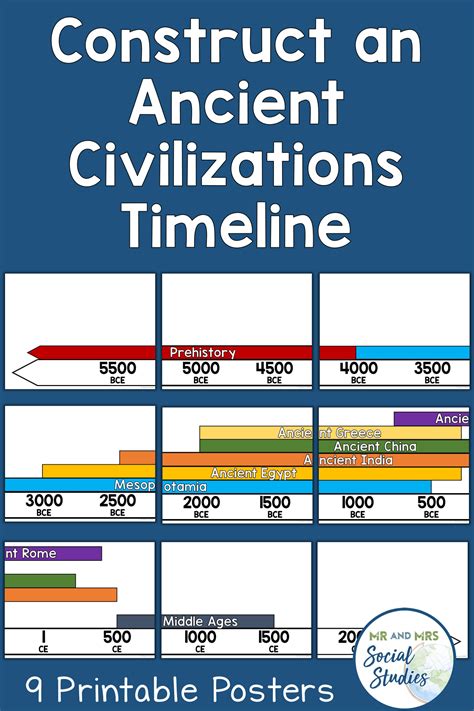The history of civilization is a long and complex one, spanning thousands of years and encompassing countless cultures, empires, and events. It is a story of human progress, of advancements and setbacks, of triumphs and tragedies. From the earliest stirrings of human society to the present day, the history of civilization is a rich and fascinating tapestry, woven from the threads of countless individual and collective experiences.
At its core, the history of civilization is a story of human ingenuity and resilience. It is a testament to our species’ ability to adapt, to innovate, and to overcome even the most daunting challenges. From the development of language and writing to the creation of complex societies and governments, human civilization has been shaped by a constant drive to improve, to explore, and to discover.
One of the earliest and most significant developments in the history of civilization was the rise of agriculture. Around 10,000 years ago, humans began to domesticate plants and animals, marking a significant shift away from a nomadic, hunter-gatherer lifestyle. This innovation allowed for the growth of settled communities, the development of social hierarchies, and the emergence of complex societies.
As civilizations grew and prospered, they began to develop their own unique cultures, religions, and systems of government. In ancient Mesopotamia, the Sumerians, Babylonians, and Assyrians created sophisticated cities, harnessed the power of irrigation, and developed complex systems of writing and governance. In ancient Egypt, the pharaohs built mighty pyramids, harnessed the power of the Nile, and created a rich and vibrant culture that would endure for millennia.
The ancient Greeks, meanwhile, made significant contributions to the development of philosophy, theater, and democracy. Their city-states, such as Athens and Sparta, were hotbeds of innovation and creativity, producing some of the most influential thinkers, artists, and politicians of the ancient world. The Romans, who later rose to power, built on the foundations laid by the Greeks, creating a vast and complex empire that stretched from Britain to Egypt and left a lasting legacy in law, architecture, and governance.
The Middle Ages saw the rise of Christianity and the spread of Islamic civilization, both of which had a profound impact on the development of Western and Middle Eastern societies. The Renaissance, which began in Italy in the 14th century, marked a significant turning point in the history of civilization, as artists, scientists, and thinkers began to challenge traditional authority and push the boundaries of human knowledge and creativity.
The modern era, which began in the 18th century, saw the rise of industrialization, imperialism, and nationalism. The development of new technologies, such as the steam engine and the railroad, transformed the way people lived and worked, while the emergence of new nation-states and empires reshaped the global landscape. The 20th century, meanwhile, was marked by two devastating world wars, the rise of communism and fascism, and the emergence of the United States and the Soviet Union as superpowers.
Today, the history of civilization is more complex and multifaceted than ever before. Globalization, technological advancements, and the rise of new economic and military powers have created a world that is both increasingly interconnected and increasingly fragmented. As we look to the future, it is clear that the history of civilization is far from over, and that the challenges and opportunities that lie ahead will require all the ingenuity, resilience, and creativity that our species can muster.
The history of civilization is a testament to human ingenuity and resilience. From the earliest stirrings of human society to the present day, our species has consistently demonstrated an ability to adapt, innovate, and overcome even the most daunting challenges.
Comparative Analysis of Ancient Civilizations
| Civilization | Time Period | Key Achievements |
|---|---|---|
| Sumerian | 4500-1900 BCE | Developed writing, created sophisticated cities, harnessed the power of irrigation |
| Ancient Egyptian | 3100-30 BCE | Built pyramids, developed complex systems of writing and governance, created a rich and vibrant culture |
| Ancient Greek | 800-146 BCE | Made significant contributions to philosophy, theater, and democracy, produced influential thinkers, artists, and politicians |
| Roman | 753 BCE-476 CE | Built a vast and complex empire, developed systems of law, architecture, and governance, left a lasting legacy in Western civilization |

Historical Evolution of Government
The development of government has been a long and complex process, shaped by the needs and values of different societies and cultures. From the earliest forms of tribal governance to the modern nation-state, the evolution of government has been marked by significant milestones and innovations.
- Tribal Governance: The earliest forms of government, characterized by small, kin-based groups and decision-making by consensus or elders.
- City-States: The development of city-states, such as those in ancient Greece, marked a significant shift towards more complex forms of governance, with the emergence of citizenship, laws, and democratic institutions.
- Empires: The rise of empires, such as the Roman and Mongol empires, saw the development of more centralized and bureaucratic forms of governance, with the emergence of imperial systems, laws, and administrative structures.
- Nation-States: The modern nation-state, which emerged in the 18th and 19th centuries, is characterized by a centralized government, a defined territory, and a sense of national identity.
Decision Framework for Understanding Civilization
To understand the history of civilization, it is essential to consider the following key factors:
- Geography and Environment: The physical environment and geographical location of a civilization have played a significant role in shaping its development and culture.
- Technology and Innovation: The development of new technologies and innovations has consistently driven human progress, from the invention of the wheel to the development of the internet.
- Social and Cultural Norms: The social and cultural norms of a civilization have shaped its values, institutions, and relationships, influencing everything from family structures to systems of governance.
- Economic Systems: The economic systems of a civilization, from hunter-gatherer societies to modern capitalist economies, have played a crucial role in shaping its development and prosperity.
By considering these factors, we can gain a deeper understanding of the complex and multifaceted nature of human civilization, and how it has evolved over time.
Understanding Civilization: A Step-by-Step Guide
- Consider the geographical and environmental context of a civilization
- Analyze the role of technology and innovation in shaping human progress
- Examine the social and cultural norms of a civilization and their impact on its development
- Evaluate the economic systems of a civilization and their role in shaping its prosperity
The Future of Civilization
As we look to the future, it is clear that the history of civilization is far from over. The challenges and opportunities that lie ahead will require all the ingenuity, resilience, and creativity that our species can muster. From the development of new technologies to the emergence of new global powers, the future of civilization will be shaped by a complex interplay of factors, including:
- Sustainability and Environmentalism: The need to balance human development with environmental sustainability and to address the challenges of climate change.
- Globalization and Interconnectedness: The increasing interconnectedness of the world and the emergence of new global powers and institutions.
- Technological Advancements: The development of new technologies, such as artificial intelligence and biotechnology, and their potential impact on human society.
- Social and Cultural Evolution: The ongoing evolution of social and cultural norms, values, and institutions, and their impact on human relationships and societies.
By understanding the complex and multifaceted nature of human civilization, and by considering the challenges and opportunities that lie ahead, we can work towards creating a brighter, more sustainable, and more equitable future for all.
FAQ Section
What is the significance of the development of agriculture in the history of civilization?
+The development of agriculture marked a significant shift away from a nomadic, hunter-gatherer lifestyle, allowing for the growth of settled communities, the development of social hierarchies, and the emergence of complex societies.
How did the ancient Greeks contribute to the development of Western civilization?
+The ancient Greeks made significant contributions to the development of philosophy, theater, and democracy, producing influential thinkers, artists, and politicians who shaped the course of Western civilization.
What are the key factors that have shaped the development of human civilization?
+The key factors that have shaped the development of human civilization include geography and environment, technology and innovation, social and cultural norms, and economic systems.
What are the challenges and opportunities that lie ahead for human civilization?
+The challenges and opportunities that lie ahead for human civilization include sustainability and environmentalism, globalization and interconnectedness, technological advancements, and social and cultural evolution.
How can we work towards creating a brighter, more sustainable, and more equitable future for all?
+By understanding the complex and multifaceted nature of human civilization, and by considering the challenges and opportunities that lie ahead, we can work towards creating a brighter, more sustainable, and more equitable future for all, through the development of new technologies, the emergence of new global powers and institutions, and the ongoing evolution of social and cultural norms and values.



